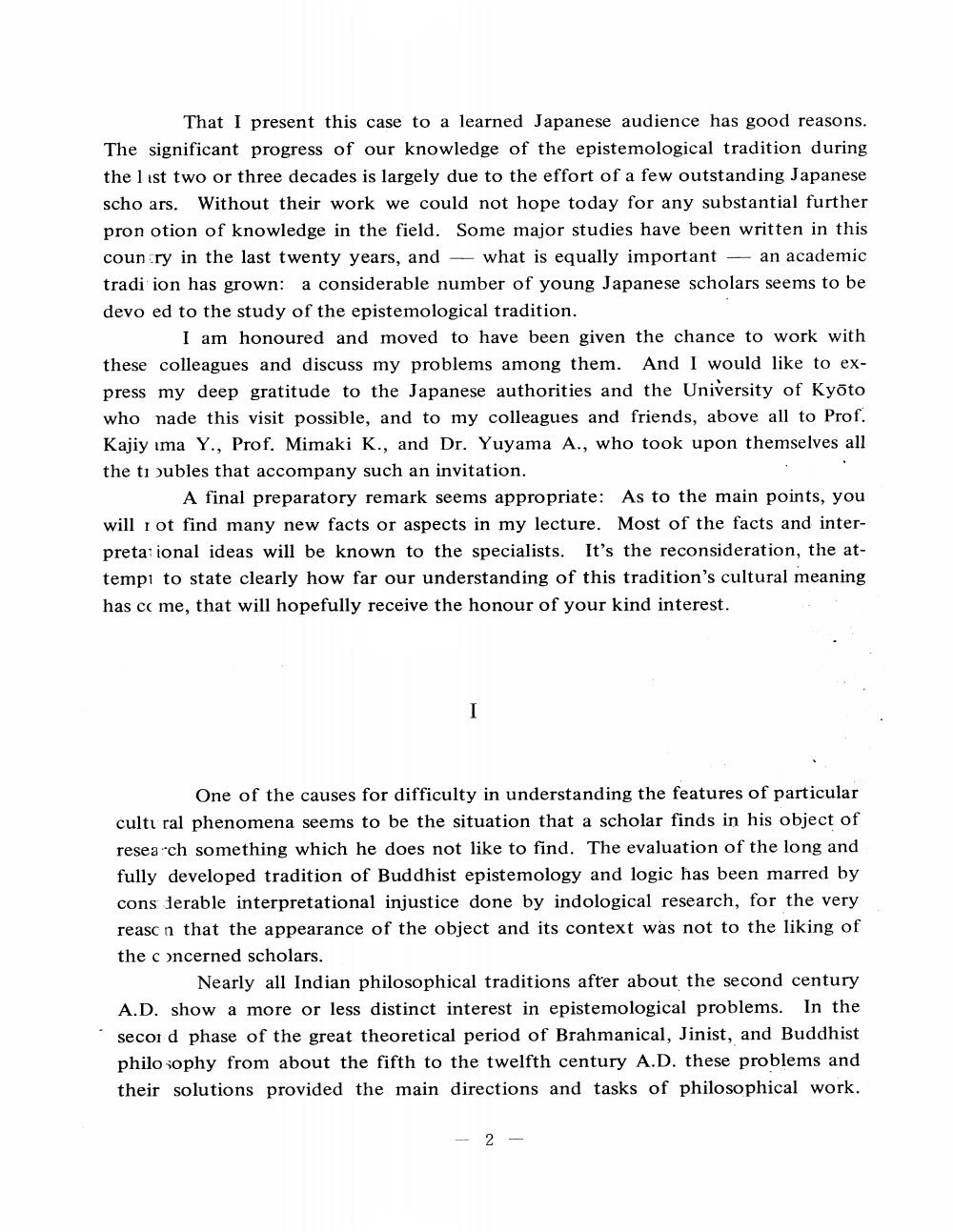Book Title: Spiritual Place Of Epistemological Tradition In Buddhism Author(s): Ernst Steinkellner Publisher: Ernst Steinkellner View full book textPage 2
________________ That I present this case to a learned Japanese audience has good reasons. The significant progress of our knowledge of the epistemological tradition during the list two or three decades is largely due to the effort of a few outstanding Japanese scho ars. Without their work we could not hope today for any substantial further pron otion of knowledge in the field. Some major studies have been written in this country in the last twenty years, and — what is equally important — an academic tradi ion has grown: a considerable number of young Japanese scholars seems to be devo ed to the study of the epistemological tradition. I am honoured and moved to have been given the chance to work with these colleagues and discuss my problems among them. And I would like to express my deep gratitude to the Japanese authorities and the University of Kyoto who nade this visit possible, and to my colleagues and friends, above all to Prof. Kajiy ima Y., Prof. Mimaki K., and Dr. Yuyama A., who took upon themselves all the ti ubles that accompany such an invitation. A final preparatory remark seems appropriate: As to the main points, you will rot find many new facts or aspects in my lecture. Most of the facts and interpreta ional ideas will be known to the specialists. It's the reconsideration, the attempi to state clearly how far our understanding of this tradition's cultural meaning has cc me, that will hopefully receive the honour of your kind interest. One of the causes for difficulty in understanding the features of particular cultural phenomena seems to be the situation that a scholar finds in his object of research something which he does not like to find. The evaluation of the long and fully developed tradition of Buddhist epistemology and logic has been marred by cons lerable interpretational injustice done by indological research, for the very reason that the appearance of the object and its context was not to the liking of the concerned scholars. Nearly all Indian philosophical traditions after about the second century A.D. show a more or less distinct interest in epistemological problems. In the second phase of the great theoretical period of Brahmanical, Jinist, and Buddhist philosophy from about the fifth to the twelfth century A.D. these problems and their solutions provided the main directions and tasks of philosophical work. - 2 -Page Navigation
1 2 3 4 5 6 7 8 9 10 11 12 13 14 15 16 17 18
